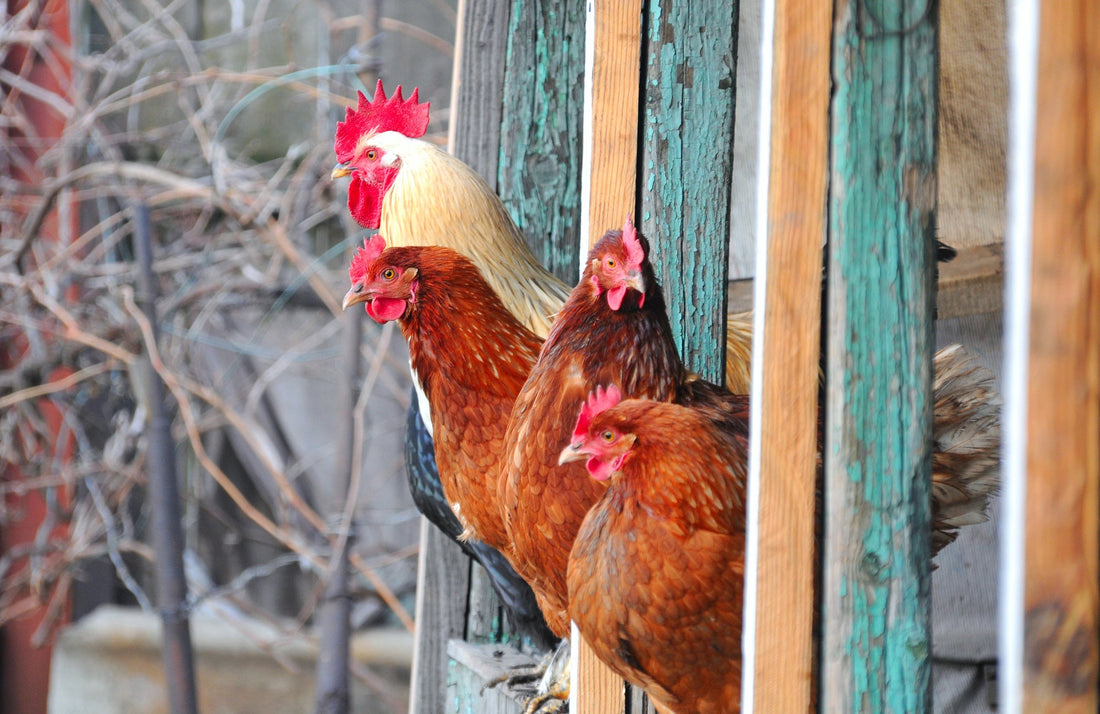When traveling with chickens, it's essential to be prepared for emergencies that may arise on the road. Whether it's an injury, illness, or unexpected mishap, having a basic understanding of first aid for chickens can be invaluable in ensuring the health and well-being of your feathered companions. In this guide, we'll explore essential first aid techniques and supplies for handling emergencies while on the road, empowering you to respond effectively and confidently in challenging situations.
Assessing the Situation: Stay Calm and Observant
The first step in providing first aid to a chicken in an emergency is to assess the situation calmly and carefully. Observe your chicken's behavior and condition, looking for signs of distress, injury, or illness. Check for any obvious wounds, bleeding, or abnormalities in posture or movement. Assess your chicken's breathing and respiratory rate, as well as its responsiveness to stimuli. By remaining calm and focused, you can gather valuable information to determine the appropriate course of action and provide timely assistance to your feathered friend.
Handling Injuries: Wounds and Trauma
In the event of an injury, it's essential to address the situation promptly to prevent further harm and promote healing. If your chicken has sustained a wound or trauma, assess the severity of the injury and take steps to stabilize your chicken and minimize discomfort. Clean the wound gently with mild antiseptic solution or saline solution to remove dirt and debris, and apply a clean bandage or dressing to protect the area from infection. If the injury is severe or involves significant bleeding, seek veterinary care as soon as possible for further evaluation and treatment.
Managing Illness: Signs and Symptoms
Illness can strike unexpectedly, especially when traveling with chickens in unfamiliar environments. It's essential to be vigilant for signs and symptoms of illness in your chickens and take prompt action to address any health concerns that arise. Common signs of illness in chickens include lethargy, loss of appetite, abnormal droppings, respiratory distress, and changes in behavior or posture. If you notice any of these symptoms, isolate the affected chicken from the rest of the flock to prevent the spread of disease and seek veterinary advice for diagnosis and treatment.
Providing Support: Comfort and Care
In times of crisis, your chickens may need additional support and comfort to help them through the ordeal. Keep your chicken warm and dry, providing shelter and protection from adverse weather conditions. Offer small amounts of water and nutritious food to encourage hydration and maintain energy levels. Provide a quiet and peaceful environment free from stressors or distractions, allowing your chicken to rest and recover at its own pace. By offering gentle care and reassurance, you can help alleviate your chicken's discomfort and promote a speedy recovery.
Emergency Supplies: Stocking Your First Aid Kit
A well-equipped first aid kit is essential for addressing emergencies on the road and providing timely care to your chickens. Stock your kit with essential supplies such as sterile gauze pads, adhesive bandages, antiseptic solution, tweezers, scissors, and disposable gloves. Include medications and treatments for common poultry ailments such as wound spray, electrolyte solutions, and antibacterial ointments. Additionally, pack a flashlight, extra batteries, and a basic guide to poultry first aid for reference in emergencies. Keep your first aid kit easily accessible and well-organized, ensuring you can respond quickly and effectively to any situation that arises.
Seeking Professional Help: When to Call a Vet
While basic first aid skills are essential for addressing minor injuries and illnesses, there are times when professional veterinary care is necessary. If your chicken's condition does not improve or worsens despite your efforts, or if the injury or illness is severe or life-threatening, seek veterinary assistance immediately. Contact a local veterinarian with experience in poultry care or locate an emergency veterinary clinic in your area. Provide detailed information about your chicken's symptoms, medical history, and any first aid measures you have taken to assist the veterinarian in making an accurate diagnosis and providing appropriate treatment.
Preventing Emergencies: Proactive Measures
While emergencies are sometimes unavoidable, there are proactive measures you can take to minimize the risk of accidents and health problems while traveling with chickens. Keep your chickens' living quarters clean and well-maintained, reducing the risk of exposure to pathogens and parasites. Provide a balanced diet and access to clean water to support your chickens' overall health and immune function. Avoid exposing your chickens to extreme temperatures, drafts, or other environmental stressors that may compromise their well-being. By taking preventive measures and practicing good husbandry, you can help keep your chickens healthy and happy on the road.
Empowering Chicken Keepers with First Aid Skills
Having a basic understanding of first aid for chickens is essential for anyone traveling with poultry. By knowing how to assess and address emergencies, stock a first aid kit, and seek professional help when needed, you can ensure the health and well-being of your feathered companions on the road. By staying calm, prepared, and proactive, you can handle unexpected challenges with confidence and provide the best possible care for your chickens in times of need.

